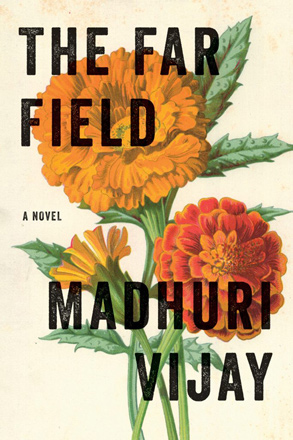The Far Field
Madhuri Vijay
New York: Grove Press, 2019
Pp. 432
This is Madhuri Vijay’s first novel, and it is both original and beautifully written. Unlike the many Indian novels that are set in Mumbai, Delhi or Calcutta, and involve an extended family, “The Far Field” rotates between Bangalore and a remote village in Kashmir, and focuses on a small family consisting only of father, mother and daughter. In an interview at the end of the book, Vijay reveals that these choices are deliberate. Having grown up in Bangalore and worked for a time in a Kashmiri village, she eyed the chance to highlight lesser-known places and the effects of social change in the 1990s brought about by economic liberalisation: “The older traditional joint family structure, at least among a tiny section of urban elites, was starting to give way to the Westernised model of nuclear families…”
The novel is cutting-edge modern in that the main character, Shalina, who narrates the story, is no heroine, but a deeply problematic character. One could argue that there is no real protagonist, but rather a set of characters who gradually reveal themselves as they bounce off each other. While some of the Kashmiris are well grounded, most of the characters are locked in an internal struggle as to who they are and what they want in life. As dramatic encounters pile up, these searches for self can lead to great love and loyalty — or betrayal.
Shalini bonds closely with her mother, an impervious, irascible woman whose hard, outer shell has been honed by resentment at not having gotten the higher education attained by her husband. With her unpredictable moods and outlandish behaviour, she has no friends, but she is also exciting and fun. Shalina idolises her and takes her side against her father, a kind, slightly self-important factory owner, whose patience keeps the marriage afloat. Shalina inherits her mother’s self-imposed loneliness and lack of trust in others, as well as her penchant for acting on impulse. She seems alienated, without a purpose in life.
When Shalini is six years old, a knock on the door changes everything, triggering a complex plot that is both personal and political. It is a Kashmiri travelling salesman who offers a variety of clothing. Though he sells only a single item to Shalina’s mother, he begins to visit regularly over the following years, drinking tea and mesmerising the mother and daughter with his thoughtful, modest manner and his telling of ancient legends. In his presence, Shalina sees her mother transformed, becoming softer around the edges and actually happy. Thus, Shalina becomes an accomplice to her mother’s greatest secret. “Looking back, I can see that something powerful occurred at that moment and it still astonishes me all these years later: Bashir Ahmed understood in about five minutes what took my father decades. And me? What did I understand back then? Nothing, except that when my mother laughed like that, it made me want a million things at once.” (p. 36)
Bashir Ahmed is not eager to speak about the India-Kashmiri conflict, but at some point, it becomes an uncomfortable issue and he disappears. Over a decade later, after her mother dies, Shalina is at loose ends and decides to go to Kashmir to find him and by implication a new family and herself. Though people there are kind to her, obstacles to finding Bashir Ahmed are erected at every turn. Meanwhile, Shalina sees and hears shocking things about the conflict — Hindu resentment and frankly expressed racism against Kashmiri Muslims, the army’s abuses and intimidation of the population — torture, arrests and the “disappearances” of young men on the tenuous assumption that they are militants. However, she is unable to sort her experiences into a coherent whole. She wants to help, but her self-absorption, incomplete picture of Kashmiri reality and inability to enter into real friendships mean that she makes things worse for the very people who take her in.
The story says a lot about ignorance and indifference to injustice even if it is not so far away. Like the novel itself, Vijay is very honest about this: “Ignorance, deliberate or otherwise, was very much on my mind when I was writing the novel, and I mean the kind of ignorance that exists not just in India, but all over the world. The kind most of us practice in one form or another every single day, closing our eyes to the world’s horrors so we can carry on with our lives.”
Vijay has plotted the novel carefully: Shalini’s childhood and adolescence, which paved her way to Kashmir, is told in alternating flashback chapters, gradually filling in the background and explaining, but only partially, the characters’ actions. Still, a large gap remains for the irrational; motivations often remain murky; and people are caught in roles they are forced to play.
Yet, there are also beautiful passages as Vijay describes the stunning mountains of Kashmir and the close-to-nature life in a remote village. There are also happy and even amusing scenes, but the emphasis is on the darker sides of human behaviour. Clearly, the author set out to make the reader think as well as to entertain. This is a gripping tale which one will not soon forget.
